ANGELS in America has garnered its writer, Tony Kushner, a number of awards, including two consecutive Tony awards in 1993 and 1994, and a Pulitzer Prize.
With productions like Progress Theatre’s, it’s easy to see why.
The play follows the lives of two separate couples as their worlds collide in mid-80s New York, where Prior contracts AIDS and his boyfriend Louis leaves.
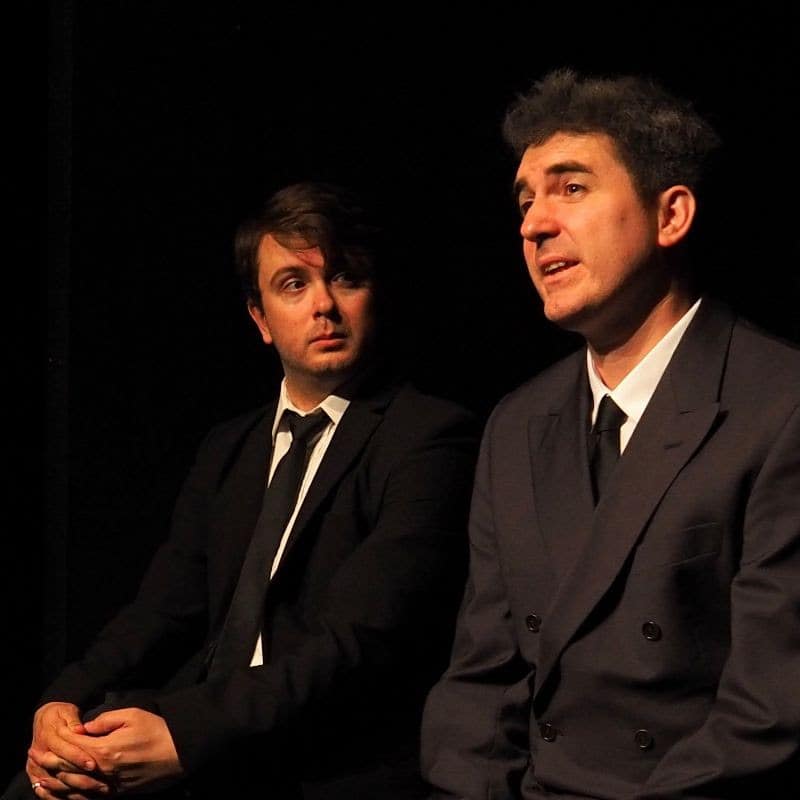
Louis meets Joe, a lawyer who is struggling to connect to his wife, Harper.
It takes place over two full-length plays, Millenium Approaches and Perestroika, with most full productions lasting well over seven hours.
It is, as such, no small feat that Progress Theatre’s production doesn’t even begin to approach the feeling of an overly generous run-time.
In fact, it is to its great credit that the first half of the production races by in a flash.
Firstly the strong cast of eight show not only versatility– with each actor filling at least two roles, most closer to four or five– but also their ability and comfort in their roles.
Jake Turnell Willett plays Prior with a dramatic, pearl-clutching campness which still avoids being over-egged.
He gives a more grounded, well-observed flamboyance which suits the character perfectly, and the warmth of his portrayal is the keystone which holds much of emotional investment in the events of the play.
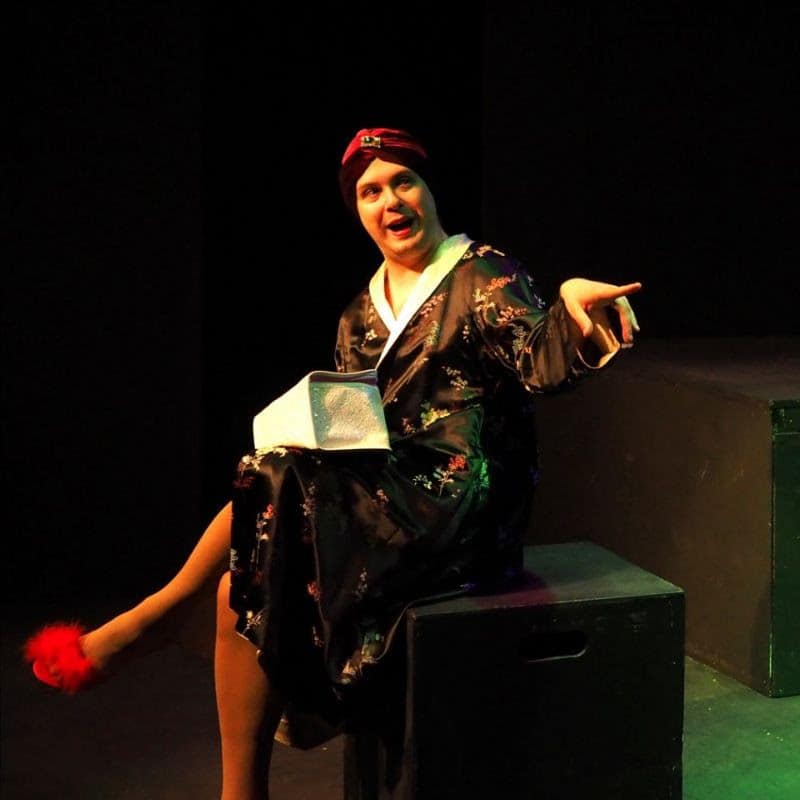
He is matched by Dan Clarke’s similarly credible portrayal of Prior’s boyfriend, Louis, which takes a comfortable but considered approach to the Jewish diaspora in the USA of the late 80s.
Again, the warmth of the portrayal means that Louis and Prior feel, rightly, like the focus of the play’s first half.
They’re joined by Joe and Harper as the “main” four characters of the play, who are also struggling to hold their relationship together.
Harper is wrestling with with her mental health, while Joe tackles pressure from his work as a legal clerk and suppressed sexual frustrations.
Karmella Czwordon’s portrayal of Harper delights in the often absurd places the strange reality of the play takes her, but without making light of them.
Similarly, Matthew Turner carried the struggles of homosexual repression well, torn between the idea of a white-picket-fence, American Dream-style marriage and his more realistic internal desires.
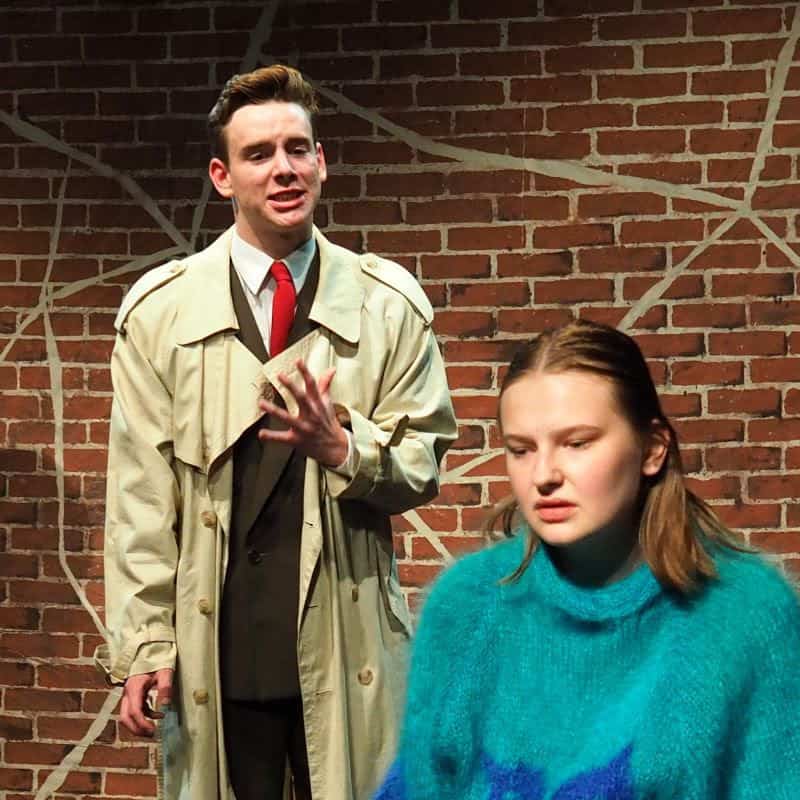
Paul Gallantry’s portrayal of American lawyer Roy Cohn was enjoyable, especially as the very darkest sides of the character come to the fore while he spirals during the second half.
Melanie Sherwood in particular juggled a number of roles with ease.
As both Hannah, Joe’s mother, and the ghost of Ethel Rosenberg, she carried a solemn counterpoint to the lighter aspects of the production, adding a palpable gravity to much of the narrative’s plot developments.
As Rabbi Chemelwotz, however, she shows a weary, sardonic wit in an opening scene which, through her alone, sets the contrasting tones of the production perfectly.
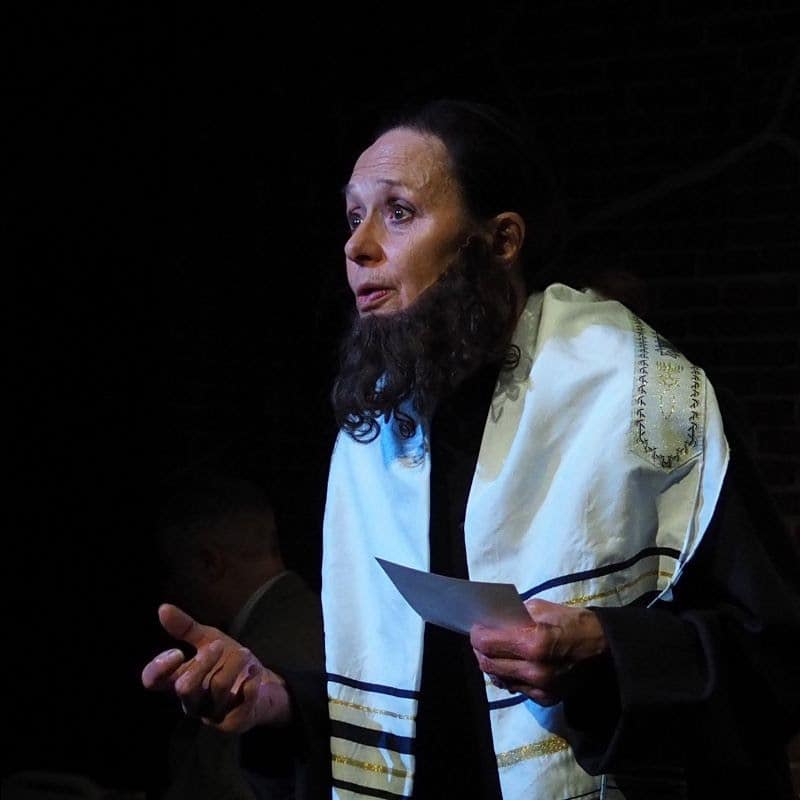
Rounding out the cast, Megan Turnell Willett shows a comparable dexterity, and Nii Okyne’s soft-spoken portrayal of ex-drag queen nurse Belize is a joy to watch.
Overall, the production is carried by its characters, which is often a necessity without a West End budget.
However the preparation and thorough consideration that went into this production is clear from the first line.
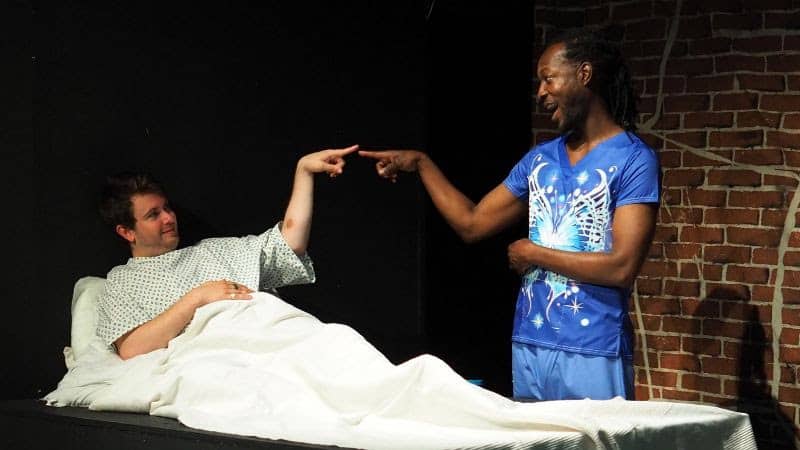
Director Matthew Beswick’s work is commendable, not only because because of the sheer unwieldy duration of the plays, but also because it seems immaterial on viewing.
Seven hours or more of passable theatre would be one thing, but seven hours of funny, touching, authentic, and at times devastatingly sad storytelling is entirely another.
In fact, it’s an impressive show of talent and dedication from everyone involved.
Angels in America has had some incredible productions, with the likes of Daniel Craig, Andrew Garfield, Russell Tovey, and Bob The Drag Queen taking up roles.
Progress has shown, not for the first time, that while big names and production values can make a great performance, a cast and crew who care about their craft can make a truly memorable one.
*****
For more on Angels in America, we spoke to director Matthew Beswick about the production.
























